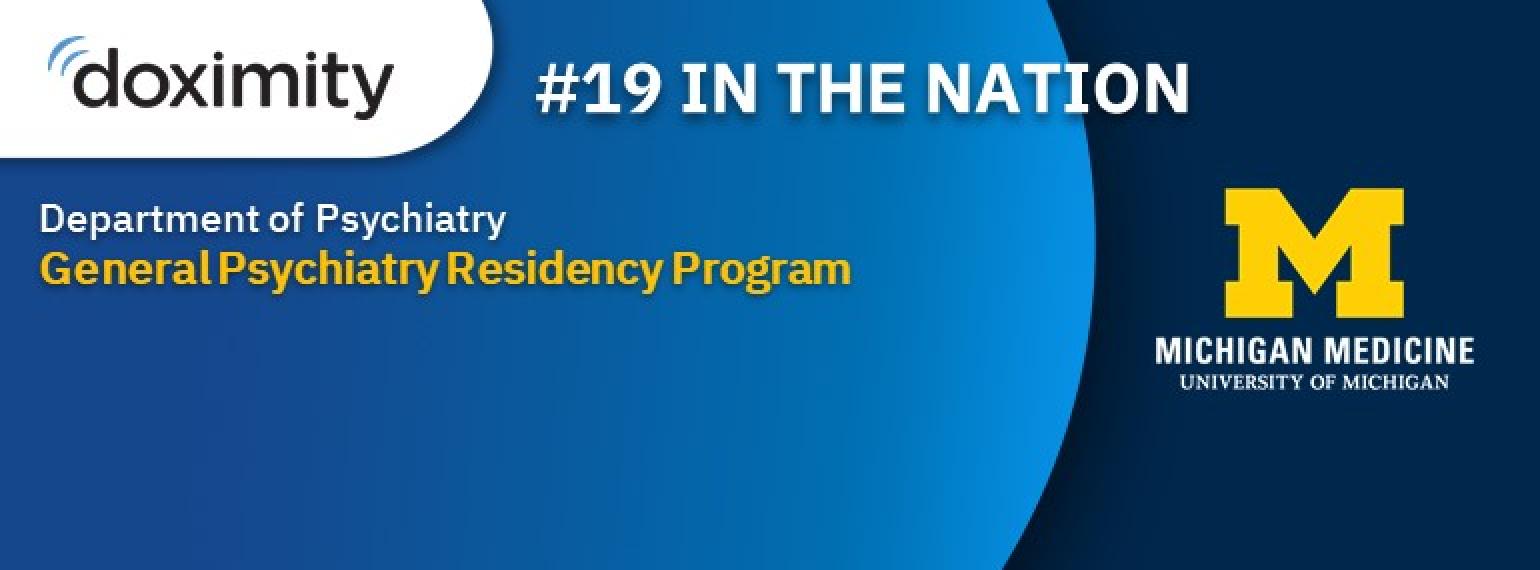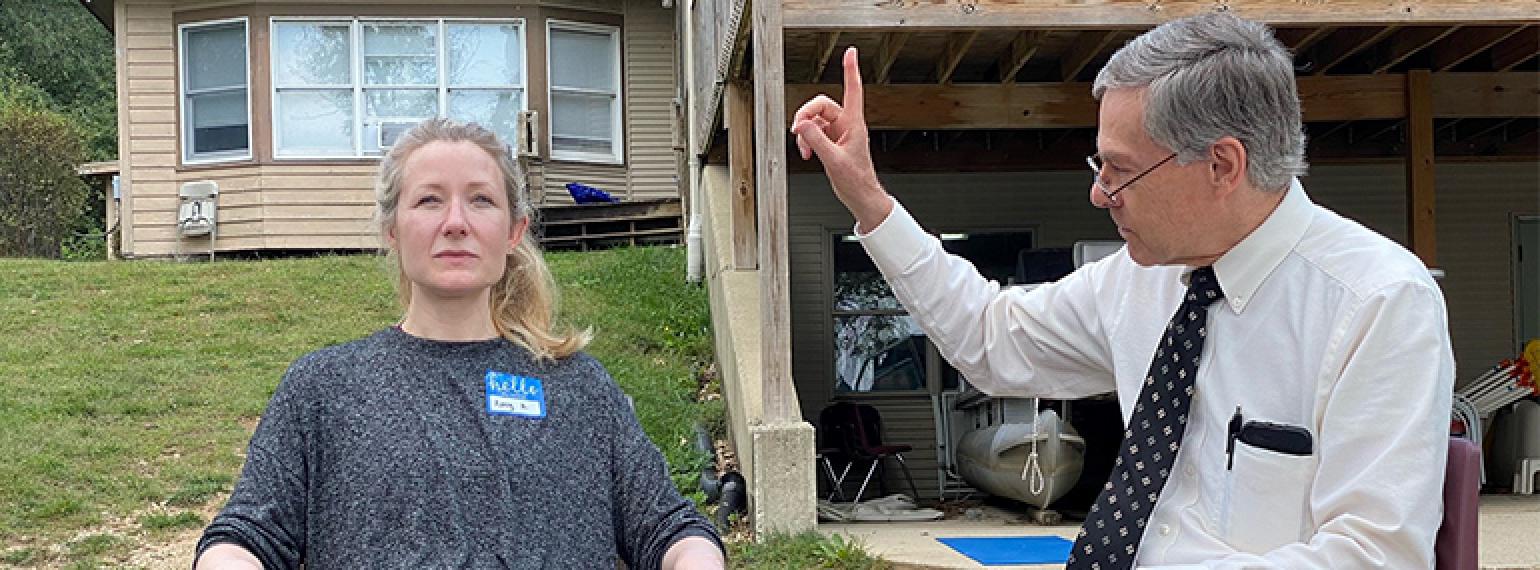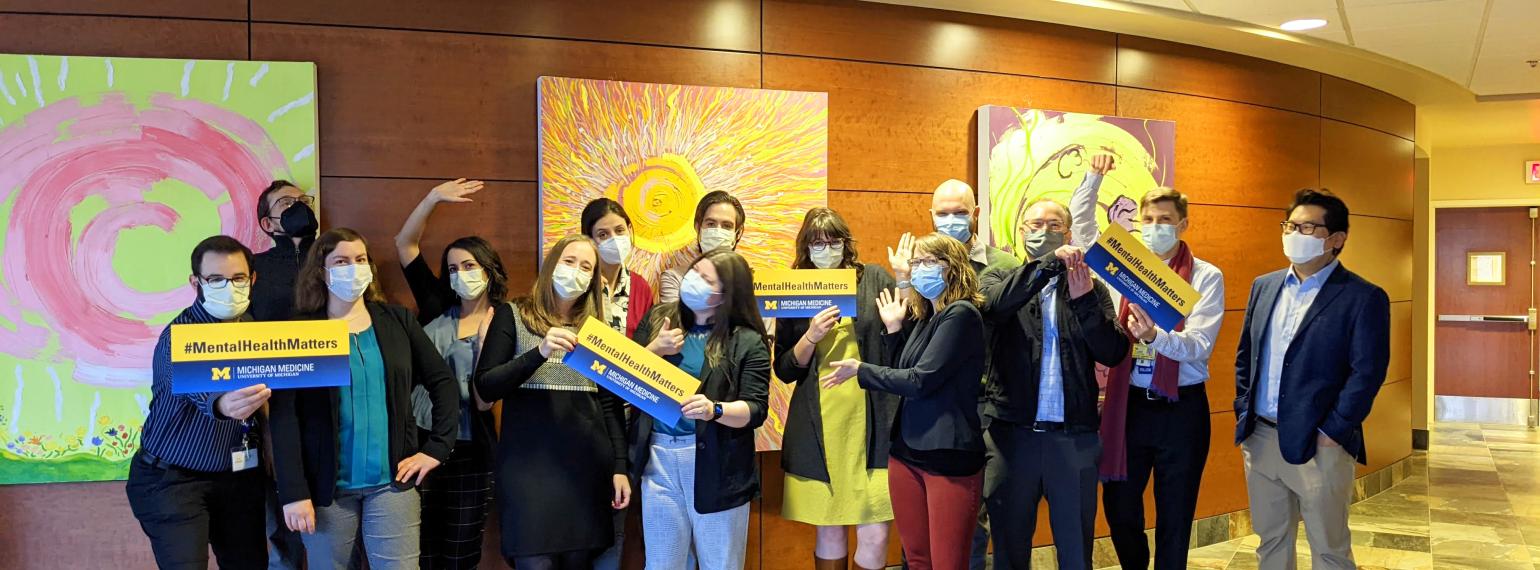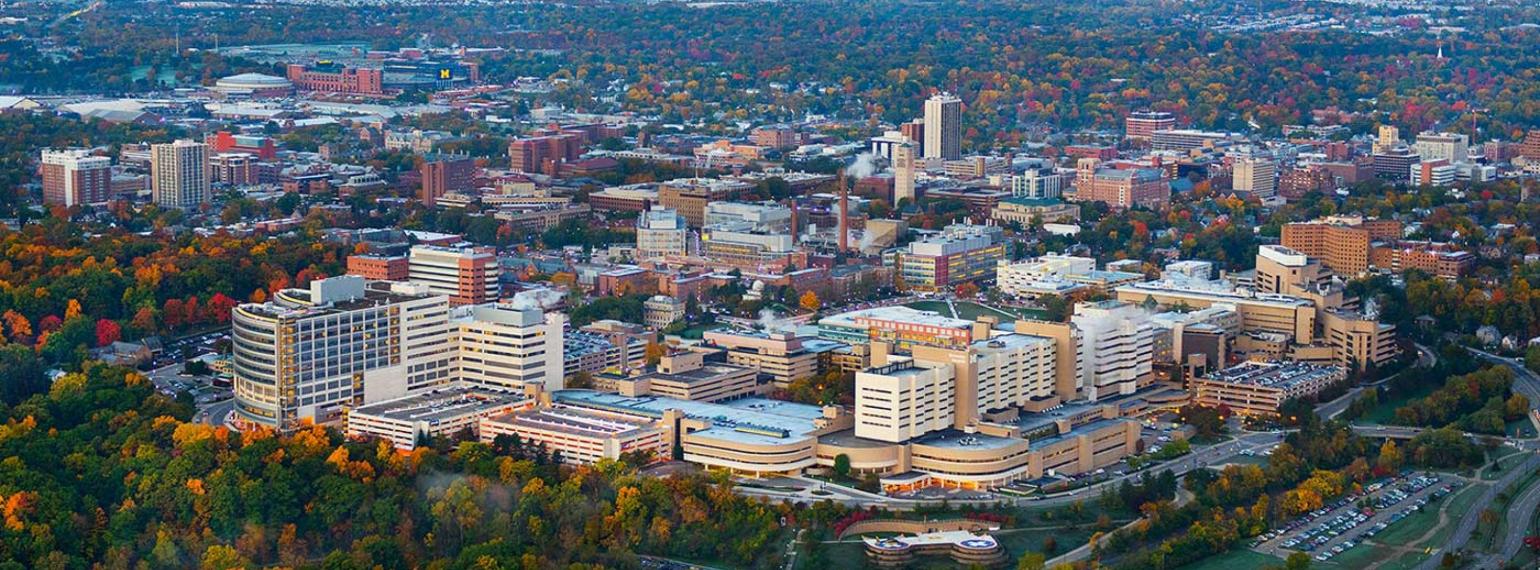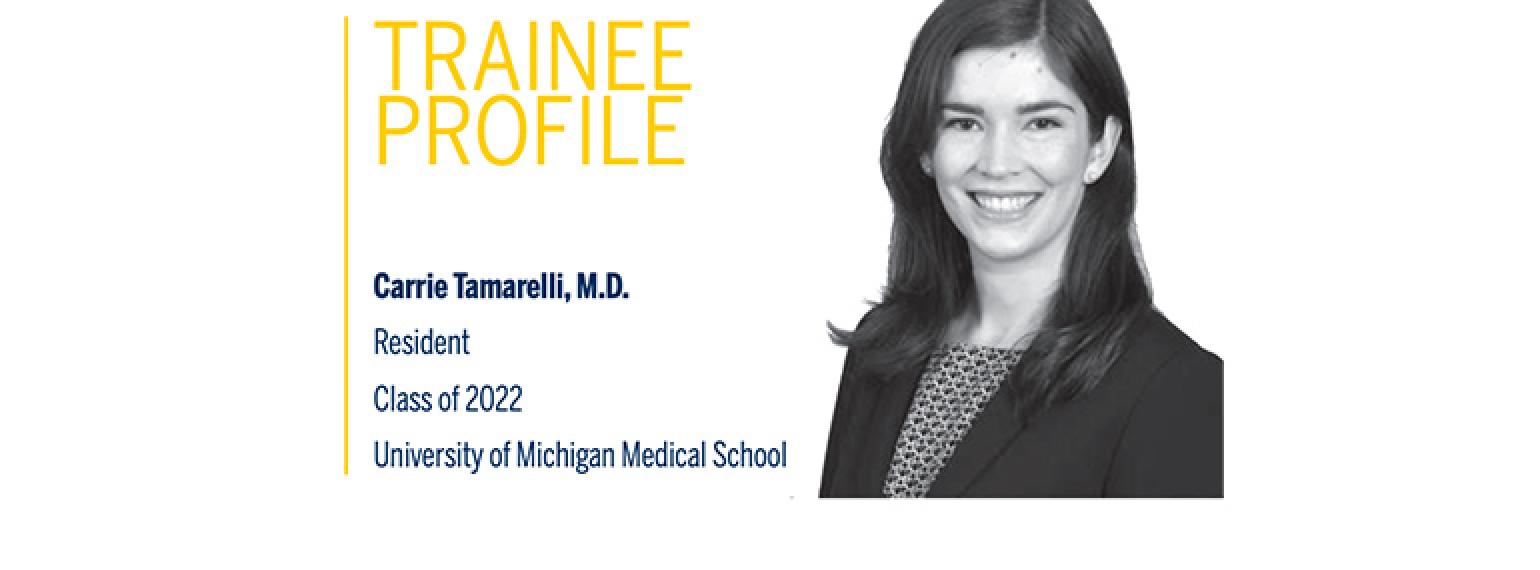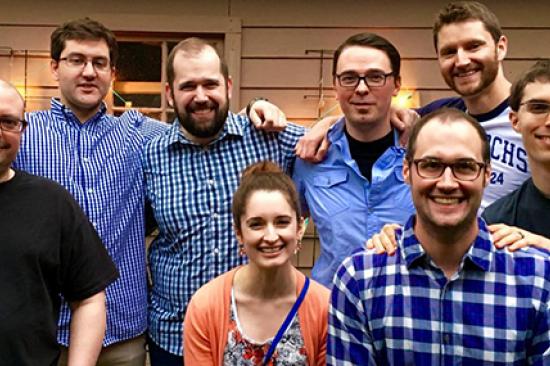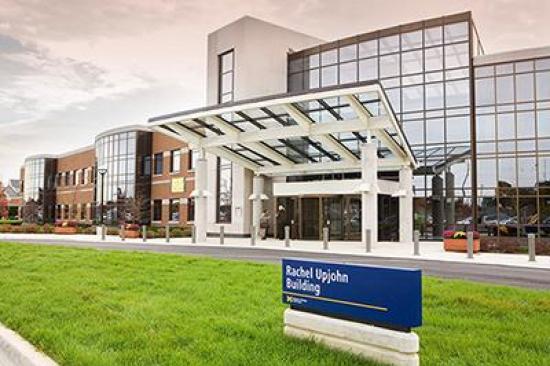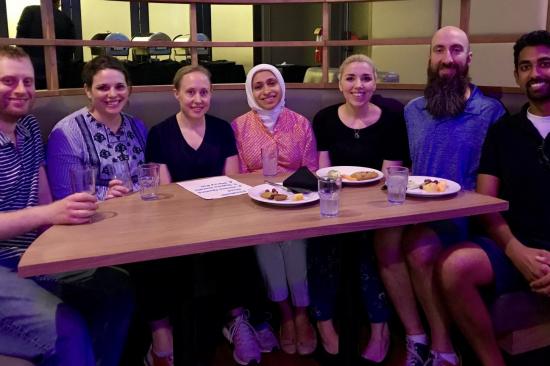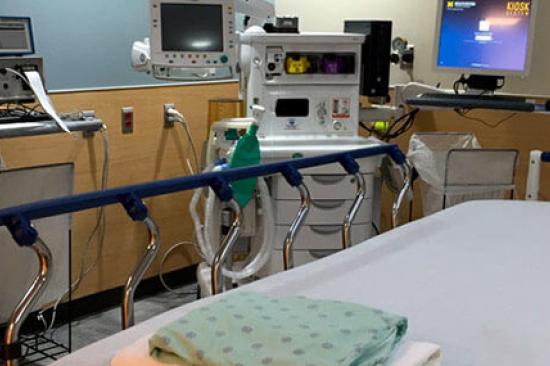Flexibility
The residency program recognizes the unique strengths and goals of each individual resident. We tailor the educational experience to ensure that every resident masters the fundamental skills of psychiatry and has the opportunity to develop individual interests and talents.
In addition to numerous options for meeting many training requirements, we have a well-established Research Track and an innovative Clinical Scholars Track for residents planning an academic career as a researcher or clinical educator. Graduates of both programs may now be found on our own faculty and spread throughout first-tier institutions across the country.
“The program’s support staff members are very attentive to family and health-related concerns. They have skillfully and sensitively made adjustments in the schedule when residents need to attend to important personal issues.”
Katy Rockefeller, M.D., Alumni
Our family-friendly approach to training recognizes the importance of personal as well as professional development, that family relationships are essential to well-rounded individuals, and that planning for a family cannot reasonably be deferred indefinitely. We offer part-time options at all levels of training, a generous parental leave program, subsidized child care for house officers, and home care for sick children.
Supervision & Mentorship
Residents have the opportunity to work directly with a large faculty of world-renowned researchers, respected clinicians, and award-winning teachers. In contrast to some “ivory tower” academic settings, faculty members are directly involved in patient care, resident education, and individual mentorship. Residents work side-by-side with faculty to provide care for patients from every socioeconomic and cultural background with the full range of psychiatric disorders. Clinical rotations are demanding and intensive, but faculty supervision and mentorship is equally intensive. The result is clinical training of unparalleled excellence.
“The U of M is an amazing training institution. The faculty are brilliant and all extremely approachable (including those at the very top). I’ve learned so much from them, from my co-residents, and from the variety of training settings that we are exposed too. Ann Arbor is a great place to live too!” Jenny Wang, M.D., Alumni
All clinical rotations include individual supervision of clinical work by faculty. In addition, psychotherapy training includes the assignment of a supervisor from the full-time faculty or from practicing psychiatrists in the community. We enjoy an excellent relationship with the Michigan Psychoanalytic Institute, which generously provides many of their own faculty members for supervision of psychotherapy cases and didactic instruction. The psychoanalytic faculty members also serve as adjunct faculty at the University.
Each class also has a faculty advisor who meets with the class for lunch once a month to discuss nonclinical issues of interest to the residents. Class advisors guide residents through transition periods, serve as class advocates, and provide a forum for discussion of personal and group issues.
Residents in the special Research Track and Clinical Scholars Track choose faculty mentors to guide them through those aspects of training. Other residents also have the option of arranging individual mentor relationships with faculty.
Clinical Expertise
The University of Michigan Health System is a leader in innovative, front-line clinical care. Residents have the opportunity to work alongside leading members in the University of Michigan Eisenberg Family Depression Center, the country’s first comprehensive center for research and clinical care of depression and bipolar disorder. Elective rotations in Women’s Health and Psycho-oncology involve residents in state-of-the-art models of integrative care. Core rotations in the Anxiety Disorders Clinic place residents at the forefront of broad-spectrum anxiety disorder treatment, combining intensive cognitive and behavioral therapies with medication management. Residents in the Geropsychiatry Clinic work in close collaboration with Psychiatry faculty and the Turner Geriatric Clinic to provide both the psychiatric and medical needs of the older population. Residents benefit from faculty expertise in individual and group dialectic behavioral therapy in the Personality Disorders Clinic. Similar depth of experience is found in community psychiatry, emergency psychiatry, PTSD treatment, child psychiatry, addiction psychiatry, ECT, and many others.
Academic Excellence
The University of Michigan is a leader in psychiatric research, ranking highly among recipients of research grant funding from the National Institutes of Mental Health. Research programs through the Michigan Neuroscience Institute, Eisenberg Family Depression Center, Stress and Anxiety Disorders Program, and the Ann Arbor VA Medical Center, among others, provide a broad range of research opportunities for interested residents and create a strong academic environment for all trainees.
“Each year of my residency seems like a new experience with different challenges and opportunities. I feel better prepared for my career after being exposed to the VA healthcare system, three different inpatient units (including an inpatient child unit), a dedicated psychiatric emergency room, Community Mental Health, and an amazing outpatient clinic. You’ll see everything here in multiple contexts.” Matthew Laurencelle, M.D., Alumni

